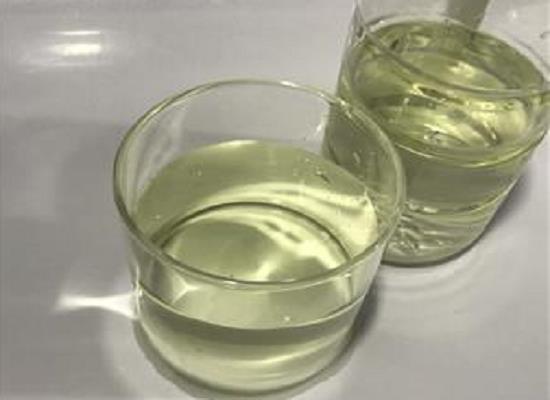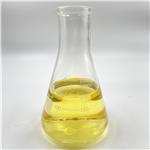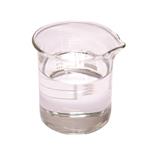Methyl Phenylacetate: Diastereoselective Aldol Reactivity and Potential Toxicity Considerations
Jul 2,2024
General Description
Methyl phenylacetate, an ester with a sweet, floral scent, finds applications in flavors, fragrances, and pharmaceuticals. Its diastereoselective aldol reaction, influenced by solvents and temperatures, yields distinct stereoisomers. The compound's toxicity lacks human data but shows detectability in bees, hinting at potential applications in diagnostics. Understanding its safety profile remains crucial. Overall, methyl phenylacetate's versatile synthesis methods and pleasant odor make it valuable in various industries, emphasizing the importance of further research to ensure its safe utilization.

Figure 1. Methyl Phenylacetate
Overview
Chemical and Physical Properties
Methyl phenylacetate, also known by its chemical name methyl 2-phenylacetate, is an organic compound classified as an ester. Its molecular formula is C9H10O2. This compound is produced through the esterification of phenylacetic acid with methanol. In terms of its physical properties, methyl phenylacetate is a clear, colorless liquid at room temperature. It is relatively soluble in organic solvents, but less soluble in water.
Applications
Methyl phenylacetate is recognized for its pleasant and sweet odor, often described as honey-like with floral and fruity undertones, which makes it a popular additive in the flavor and fragrance industries. This ester is used not only in perfumes and cosmetics but also in food flavorings, where it imparts a sweet, floral aroma. Its applications extend to the pharmaceutical industry as well, where it serves as an intermediate in the synthesis of other complex molecules. Additionally, because of its characteristic scent, it is sometimes used in the formulation of cleaning agents and detergents. 1
Diastereoselective Aldol Reaction
Strategic Control over Solvent and Temperature
Diastereoselective aldol reaction of Methyl Phenylacetate involves strategic control over reaction conditions such as solvent and temperature to influence stereoselectivity. Methyl Phenylacetate undergoes enolization and subsequent aldolization mediated by boron compounds, specifically Chx2BH, under varying conditions to yield β-hydroxy-R-phenyl esters with distinct stereoisomeric ratios. The choice of solvent plays a critical role in directing the stereoselectivity of the aldol reaction. For instance, in chloroform (CH2Cl2) at -78°C, the reaction predominantly favors the anti-pathway, yielding high percentages of the anti-isomer (entries 18 and 20, Table 1). Conversely, at room temperature (rt) in the same solvent, the selectivity shifts towards the syn-pathway, albeit with reduced stereoselectivity (entry 19). This solvent-dependent selectivity highlights the sensitivity of the reaction to environmental conditions.
Temperature Modulation for Stereoselectivity Enhancement
Temperature modulation also proves pivotal in controlling stereoselectivity. Lower temperatures (-78°C) during enolization followed by aldolization at 0°C enhance anti-selectivity, achieving up to 98% anti-isomer in some cases (entry 7, Table 1). In contrast, higher temperatures or room temperature conditions often lead to a more balanced or syn-selective outcome (entries 18, 19, and 20). Furthermore, the study underscores the versatility and robustness of the boron-mediated aldol reaction in generating diverse β-hydroxy-R-phenyl esters from Methyl Phenylacetate. The method's adaptability to different substrates, such as those bearing electron-donating or withdrawing groups, illustrates its potential in complex molecule synthesis. In conclusion, the diastereoselective aldol reaction of Methyl Phenylacetate exemplifies how precise manipulation of reaction parameters can achieve tailored stereoselective outcomes, crucial for synthetic organic chemistry aiming at specific structural and functional group arrangements in target molecules. 2
Toxicity
Methyl phenylacetate is a compound commonly used as a food and beverage ingredient and serves as a starting material in the manufacture of synthetic perfumes. Despite its widespread application, there is a notable absence of human toxicity data for methyl phenylacetate. Animal studies have provided some insights, such as research involving restrained bees exposed to methyl phenylacetate. This study aimed to determine the bees' ability to detect volatile signatures, revealing that methyl phenylacetate was detectable over eight orders of magnitude. Although this indicates potential for using trained honeybees in non-invasive diagnostic tests for tuberculosis (TB), it does not directly address the toxicity of methyl phenylacetate in humans or other animals. Consequently, while methyl phenylacetate appears to be useful and detectable in various contexts, comprehensive studies are essential to fully understand its toxicity profile and ensure its safe use. 1
Reference
1. Methyl phenylacetate. National Center for Biotechnology Information. 2024; PubChem Compound Summary for CID 7559.
2. Ramachandran PV, Chanda PB. Solvent- or temperature-controlled diastereoselective aldol reaction of methyl phenylacetate. Org Lett. 2012; 14(17): 4346-4349.
- Related articles
- Related Qustion
ε-Caprolactone-modified polyethylenimine nanocarriers enhance siRNA delivery, demonstrating minimal toxicity and high biocompatibility, making them crucial for safe gene therapy.....
Jul 2,2024APITauroursodeoxycholic acid shows promise for treating Alzheimer's by improving cognition via neuroprotective mechanisms, warranting further clinical validation for human use.....
Jul 2,2024APIMethyl phenylacetate
101-41-7You may like
- What is levofloxacin used for?
Aug 16, 2024
- Guanosine Hydrate: A Versatile Nucl....
Aug 16, 2024
- 1,4-Naphthoquinone: Biological Activity and Biomedical Applications
Aug 16, 2024
Methyl phenylacetate manufacturers
- Methyl phenylacetate
-

- $30.00 / 10g
- 2024-08-16
- CAS:101-41-7
- Min. Order: 10g
- Purity: 98%
- Supply Ability: 2000kg
- Methyl phenylacetate
-

- $0.00 / 1kg
- 2024-08-15
- CAS:101-41-7
- Min. Order: 1kg
- Purity: 98%
- Supply Ability: 20tons
- Methyl phenylacetate
-

- $20.00 / 1kg
- 2024-08-15
- CAS:101-41-7
- Min. Order: 1kg
- Purity: 99%
- Supply Ability: 2T




